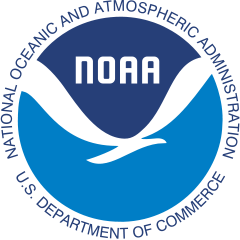Model Data

Visualizations
GFDL offers visualizations of some of our climate model results for use by the public. Examples of visualizations in our Visualization Gallery include projections of change in surface air temperature, ocean temperature, and hurricane activity. We get frequent requests for modified versions of these animations for public outreach, and we do our best to accommodate as many requests as possible. We will consider the opportunity that each request represents for the lab, as well as available resources at the time of the request. Click here to visit the Visualization Gallery.
FMS
FMS (Flexible Modeling System) is a software framework for supporting the efficient development, construction, execution, and scientific interpretation of atmospheric, oceanic, and climate system models. FMS comprises the following:
- A software infrastructure for constructing and running atmospheric, oceanic, and climate system models. This infrastructure includes software to handle parallelization, input and output, data exchange between various model grids, orchestration of the time stepping, makefiles, and simple sample run scripts. This infrastructure should largely insulate FMS users from machine-specific details.
- A standardization of the interfaces between various component models.
- Software for standardizing, coordinating, and improving diagnostic calculations of FMS-based models, and input data preparation for such models. Common preprocessing and post-processing software are included to the extent that the needed functionality cannot be adequately provided by available third-party software.
- Contributed component models that are subjected to a rigorous software quality review and improvement process. The development and initial testing of these component models is largely a scientific question, and would not fall under FMS. The quality review and improvement process includes consideration of (A) compliance with FMS interface and documentation standards to ensure portability and inter-operability, (B) understandability (clarity and consistency of documentation, comments, interfaces, and code), and (C) general computational efficiency without algorithmic changes.
- A standardized technique for version control and dissemination of the software and documentation.
FMS does not include the determination of model configurations, parameter settings, or the choice amongst various options. These decisions require scientific research. Similarly, the development of new component models is a scientific concern that is outside of the direct purview of FMS. Nonetheless, infrastructural changes to enable such developments are within the scope of FMS. The collaborative software review process of contributed models is therefore an essential facet of FMS.
Data Portal
Public data sets at the GFDL are made available through the NOAA Operational Model Archive and Distribution System (NOMADS). Click here to visit the Data Portal.


